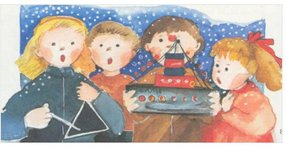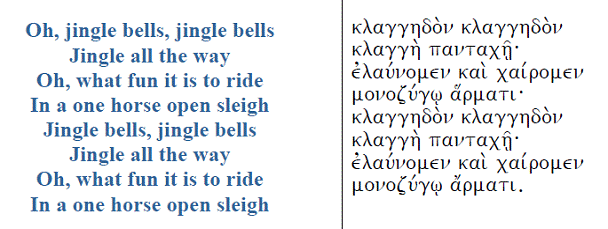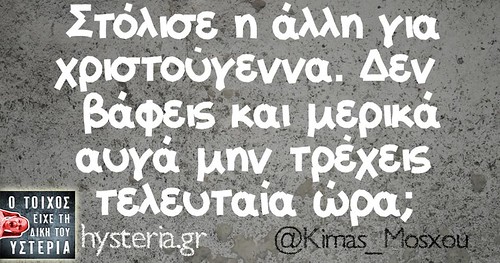Theseus
¥
Two Greek friends are going in the very early morning to sing carols on a trolley bus, one equipped with a home-made boat (to collect money in??), the other with a triangle (is this to do with τρίγωνα κάλαντα--whatever that means??). They got on a trolley bus, where most of the passengers were half asleep, even the conductor. They φρέσκοι φρέσκοι (wide-awake??) asked the passengers if they wanted to hear a carol. No reply:- Μιλιά. The next sentence is the most puzzling of all:- Έλα όμως που έπρεπε ν' αγοράσουμε το εισιτήριο του Μαθιού. Χωρίς να πάρουμε απάντηση άρχισαμε να τα λέμε:
Καληνύχτα ημέρα άρχοντες κλ.
Μερικοί μας έδωσαν κάτι δίφραγκα. Σκέφτηκα ότι, για να μαζέψουμε τις εννιακόσιες δραχμές που μας χρειάζονταν, έπρεπε να πούμε τα κάλαντα τετρακόσιες πενήντα φορές, και μου κόπηκε το κέφι. Τι να κάνω όμως, συνέχισα.
What does the sentence Έλα...του Μαθιου? What is this ticket? A lottery ticket? And what do the other queried words mean or refer to?
Καληνύχτα ημέρα άρχοντες κλ.
Μερικοί μας έδωσαν κάτι δίφραγκα. Σκέφτηκα ότι, για να μαζέψουμε τις εννιακόσιες δραχμές που μας χρειάζονταν, έπρεπε να πούμε τα κάλαντα τετρακόσιες πενήντα φορές, και μου κόπηκε το κέφι. Τι να κάνω όμως, συνέχισα.
What does the sentence Έλα...του Μαθιου? What is this ticket? A lottery ticket? And what do the other queried words mean or refer to?



